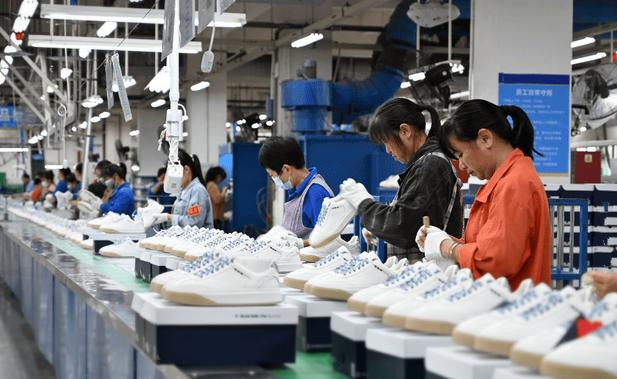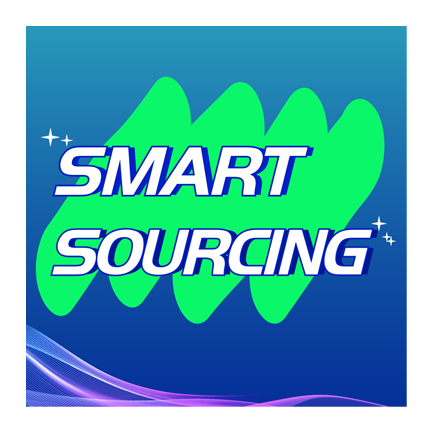In today's fiercely competitive global market, the footwear and apparel industry not only strives for fashion and design innovation but also emphasizes the excellence and stability of product quality. The complexity of quality control lies in its encompassing every aspect from raw material procurement, production manufacturing to finished product inspection. Neglecting any detail may lead to flaws in the final product, thereby affecting the brand image and consumer trust. Meanwhile, as market competition intensifies, consumers' expectations for product quality are escalating. High quality has become the key for enterprises to win market share. Therefore, how to effectively enhance and maintain product quality while ensuring efficiency has become an urgent and significant issue for the footwear and apparel industry to address.

QA outsourcing, fully known as Quality Assurance outsourcing, is an important strategic choice for enterprises in their pursuit of high-quality products and services. This model involves entrusting the quality management functions originally undertaken by the enterprise, such as quality inspection, process optimization, compliance review, etc., to third-party service providers with professional qualifications and rich experience. This approach is not only an innovation to traditional quality management methods, but also an important measure for enterprises to optimize resource allocation and enhance their core competitiveness.
By outsourcing QA, enterprises can significantly reduce the burden on their internal teams in terms of quality management, allowing them to devote more energy to core businesses such as product innovation and market expansion. At the same time, with the help of external experts' professional knowledge and advanced technology, enterprises can achieve professional and efficient quality management, ensuring that every aspect meets the highest industry standards. This service model not only enhances product quality but also greatly strengthens the market competitiveness of enterprises.
Compared to internal quality management, QA outsourcing demonstrates higher flexibility and adaptability. Faced with rapidly changing market environments and consumer demands, outsourcing service providers can swiftly adjust strategies and provide customized solutions, helping enterprises respond quickly to market changes and seize opportunities. Additionally, QA outsourcing typically offers higher-level professional services to enterprises at lower costs, maximizing cost-effectiveness.
In the footwear and apparel industry, QA outsourcing, as an efficient quality management strategy, is leveraging its unique advantages to assist enterprises in achieving dual optimization of quality and cost. Below, we will delve into the five primary benefits that QA outsourcing brings to the footwear and apparel industry.
Shoe and apparel enterprises often need to invest a significant amount of manpower, resources, and financial capital in quality management. This not only increases the operational costs of the enterprise but may also divert attention from its core business. By outsourcing QA, enterprises can entrust the tedious and specialized task of quality management to professional third-party service providers, thereby significantly reducing their investment in quality management. In this way, enterprises can focus more on core businesses such as product design and marketing, achieving efficient resource allocation and effective cost control.
Professional QA outsourcing teams typically possess extensive industry experience and advanced detection technologies, enabling them to identify and find solutions to quality issues more quickly and accurately. Compared to internal quality management, outsourcing teams can perform tasks such as quality inspection and process optimization more efficiently, thereby significantly enhancing overall production efficiency. For the footwear and apparel industry, this translates to shorter production cycles, lower defect rates, and higher customer satisfaction.
In the context of globalization, footwear and apparel products must comply with the quality standards and regulatory requirements of various countries and regions. Outsourcing service providers, who are typically familiar with international quality standards and regulatory requirements, can assist enterprises in ensuring that their products meet the entry criteria of target markets and reduce compliance risks. This not only enhances the international competitiveness of enterprises but also avoids potential losses such as market recalls and fines due to quality issues.
The footwear and apparel industry is subject to rapid market changes, with consumers exhibiting diverse and ever-evolving demands. By outsourcing QA services, enterprises can flexibly adjust the scale and scope of outsourced services in accordance with changes in business needs, swiftly adapting to market fluctuations. Whether it's expanding production scale, adding product lines, or entering new markets, outsourcing service providers can provide timely and professional support, helping enterprises seize market opportunities and achieve rapid development.
The professional team of outsourcing service providers not only possesses profound industry knowledge but also brings the latest quality management concepts and technologies to enterprises. Through close cooperation with the outsourcing team, footwear and apparel enterprises can continuously learn advanced quality management methods and technical means, promoting the continuous improvement of product quality and enterprise management level. This can not only enhance the core competitiveness of enterprises but also lay a solid foundation for their long-term development.
In the footwear and apparel industry, with the intensifying trend of globalization and the increasingly diverse demands of consumers, enterprises are facing unprecedented quality risks and challenges. Below, we will explore these risks and challenges in detail and provide coping strategies for enterprises.
With the deepening development of globalized production, footwear and apparel enterprises are increasingly reliant on transnational supply chains. However, there may be significant differences in quality control among raw material suppliers and manufacturers in different countries and regions. Ensuring consistent quality of raw materials and finished products from around the world has become a major challenge for the footwear and apparel industry. Inconsistent quality may not only lead to decreased product performance but also damage the corporate brand image and reduce consumer trust. Therefore, enterprises need to establish a strict quality control system to closely monitor every link in the global supply chain, ensuring the consistency and stability of product quality.
In international trade, various countries have different quality requirements and certification standards for imported goods. For footwear and apparel enterprises, this means that they need to invest a significant amount of resources to understand and meet these complex and ever-changing requirements, ensuring product compliance. This not only increases the operational costs of the enterprises but also may lead to product returns or encounter other compliance issues due to insufficient understanding of specific market requirements. Therefore, enterprises need to closely monitor the dynamic changes in international quality standards and regulations, and adjust their production strategies and quality management systems in a timely manner to ensure that their products can smoothly enter the target market.
In today's market environment, consumer preferences are rapidly changing, and their demands for personalized and fashionable products are increasing. To meet these demands, footwear and apparel companies must continuously introduce new products and strictly control quality during the product development process. However, new product development often comes with high risks, especially in terms of quality control. If a new product encounters quality issues, it may not only lead to market failure but also cause significant economic losses to the company. Therefore, companies need to strengthen quality control during the new product development stage, ensuring that products meet high standards in all aspects of design, production, and testing, thereby reducing market risks and enhancing product competitiveness.
Faced with these quality risks and challenges, footwear and apparel enterprises need to take proactive and effective measures to strengthen quality management. This includes establishing a comprehensive quality control system, enhancing supply chain collaboration management, improving the level of quality inspection technology, and strengthening employee training. By continuously optimizing quality management processes and methods, footwear and apparel enterprises can overcome obstacles and pursue excellent product quality and market performance.
In the footwear and apparel industry, selecting a suitable QA outsourcing supplier is crucial for ensuring product quality and enhancing market competitiveness.
Next, we will elaborate on the criteria and evaluation process for selecting QA outsourcing suppliers, as well as how to establish a solid partnership with suppliers to achieve mutual creation and win-win results.
Clarify quality requirements: Firstly, footwear and apparel companies need to clarify their own quality requirements, including product standards, testing requirements, compliance goals, etc. This will help companies more accurately match suppliers that meet their own needs during the subsequent selection process.
Comprehensive evaluation of suppliers: Based on clear quality requirements, enterprises should conduct a comprehensive evaluation of potential suppliers from multiple dimensions. This includes, but is not limited to, suppliers' qualification certification, industry experience, technical strength, service cases, and customer reputation. By gaining a deep understanding of suppliers' backgrounds and capabilities, enterprises can more confidently entrust them with quality management tasks.
Field inspection and trial: After preliminary screening, enterprises can invite candidate suppliers for field inspection or conduct small-scale trial cooperation. This will help enterprises gain a more intuitive understanding of the suppliers' actual operational capabilities and service levels, providing a solid basis for the final selection.
Establishing a long-term and stable partnership: Choosing a QA outsourcing supplier is not just a one-time transaction, but requires the establishment of a long-term and stable partnership. Enterprises should focus on communication and collaboration with suppliers, jointly set quality goals, and ensure that both parties have the same expectations for cooperation.
Jointly setting quality objectives: At the beginning of cooperation with suppliers, enterprises should clarify their quality objectives and jointly discuss and develop specific plans with suppliers to achieve these objectives. This will help both parties form a common goal orientation and promote the smooth progress of cooperation.
Regularly evaluate service effectiveness: To ensure the effectiveness of cooperation, enterprises should regularly evaluate the services provided by suppliers. This includes assessing the supplier's service quality, response speed, problem-solving capabilities, and other aspects. Through regular evaluation, enterprises can promptly identify and address issues, ensuring that cooperation remains efficient and stable at all times.
Adjust cooperation strategies in a timely manner: Market environment and consumer demand are constantly changing, so the cooperation strategies between enterprises and suppliers also need to be adjusted in a timely manner according to the actual situation. Enterprises should maintain close communication with suppliers to jointly cope with market changes and ensure that cooperation can continue to bring value to the enterprise.
When selecting QA outsourcing suppliers, footwear and apparel enterprises should clarify their own needs, comprehensively evaluate the suppliers' capabilities, and establish long-term stable partnerships with them. Through joint efforts and collaboration between both parties, they can achieve continuous improvement in product quality and continuous enhancement of market competitiveness
With the deepening of global trade and the increasingly diverse demands of consumers, the demand for high-quality and efficient quality control services in the footwear and apparel industry will continue to grow. As a flexible and efficient quality management solution, QA outsourcing will become the preferred choice for an increasing number of enterprises.
In the long run, outsourcing QA can help enterprises reduce costs and improve quality, and it is also an important way to promote sustainable development and enhance international competitiveness. By establishing stable outsourcing partnerships, enterprises can focus more on building their core competitiveness, respond flexibly to market changes, gain market advantages in the future, and achieve sustainable development.

The Smart Sourcing Content Team is committed to delivering high-quality, easy-to-understand information that helps our audience navigate the complexities of global sourcing. Our team of writers has extensive experience in producing articles across various fields such as procurement, supply chain management, market trends, and industry best practices. We specialize in sectors like apparel, textiles, and consumer goods, providing targeted insights to help businesses in these industries optimize their sourcing strategies and stay competitive.